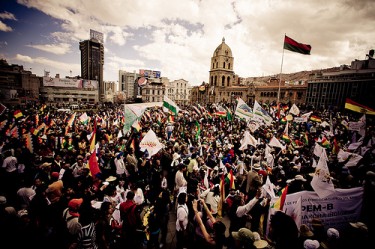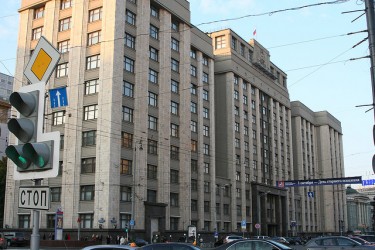
A proposed road project in Bolivia that plans to cross right through the middle of Indigenous Territory and National Park Isiboro Sécure (TIPNIS) is once again generating conflict and protest. Indigenous organizations, TIPNIS inhabitants and their supporters began a new long march on April 27, 2012 from Trinidad to La Paz demanding an end to the road project.
Plans for the 306 kilometer road are the result of an $415 million agreement signed by the Presidents of Bolivia and Brazil in August 2009. The Brazilian company OAS was initially awarded a turnkey contract to build the road in 40 months with financing from the Brazilian National Bank for Economic and Social Development (BNDES).
In October 2011, after a large march of indigenous peoples and protestors arrived in La Paz, President Evo Morales passed a bill declaring the TIPNIS “intangible” or “untouchable”, which was understood by environmental campaigners and indigenous organizations as the final word on the issue.


